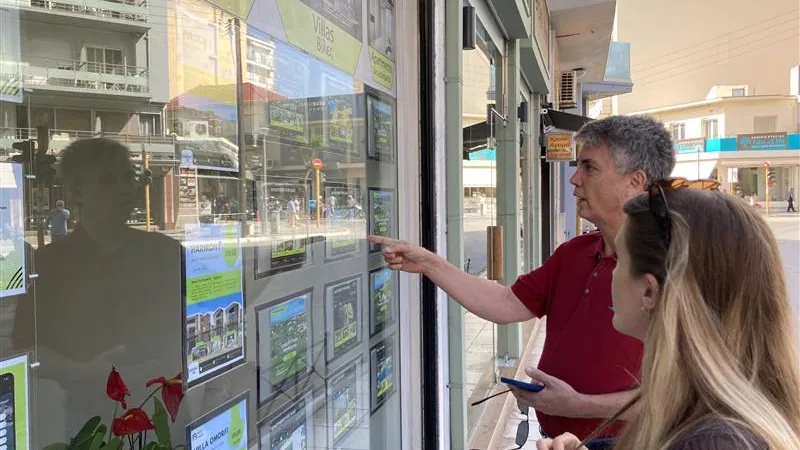Crete—the largest Greek island and the cultural crossroads of Europe, Asia, and Africa—is well known for its rugged beauty, stunning beaches, and deep history…
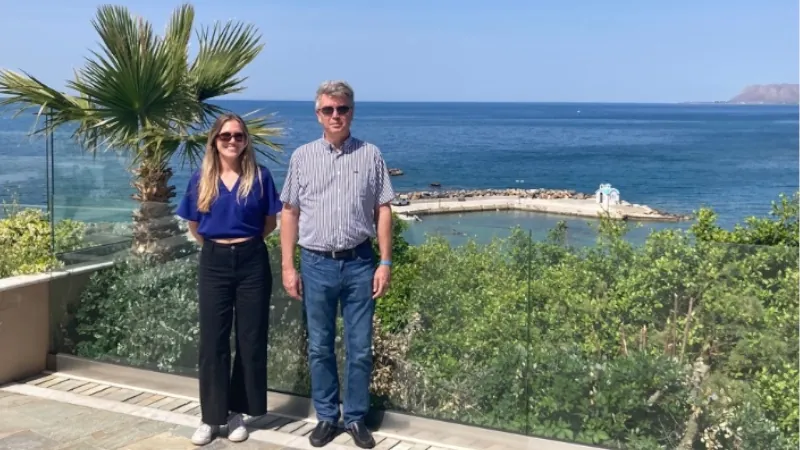
But what brings me here today isn’t a vacation: I’m on the ground in Crete with Lief Simon scouting real estate opportunities ahead of this year’s International Property Summit.
What I’ve found is one of the most compelling value propositions in the Mediterranean…
Why Crete—And Why Now
More tourists visit Crete than any of Greece’s other 5,999 islands, and its popularity shows no signs of slowing.
Over 7 million tourists visit each year, with average stays of 10 to 15 days. This demand supports a strong short-term rental market and makes Crete a prime location for lifestyle-oriented property investment.
But unlike Santorini or Mykonos, where prices are sky-high, Crete offers excellent value.
Properties in top locations here can still be had for €2,000 to €3,000 per square meter.
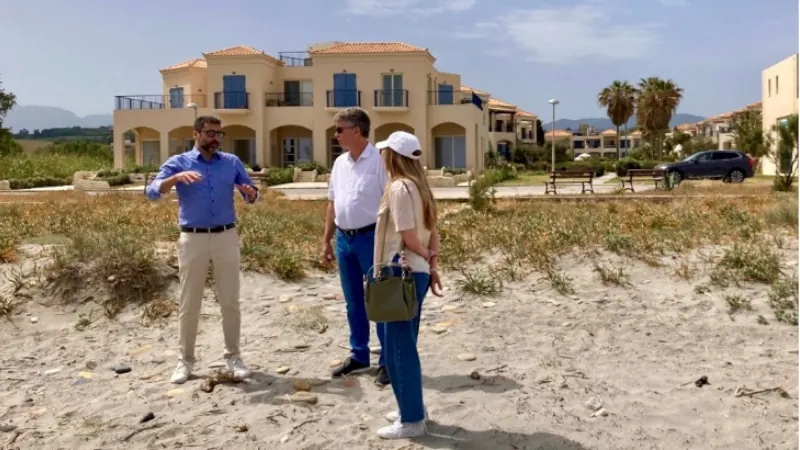
I’ve personally toured custom builds mere steps from a Mediterranean beach priced at €2,000 per square meter—about a third of what you’d pay in Marbella or the Amalfi Coast.
Heraklion: Entry Point, Not The Investment Target
My journey began in Heraklion, Crete’s commercial capital. It’s home to the island’s busiest airport and serves as the primary gateway, but little else.
Real estate here is cheaper (€1,500 to €2,500 per square meter), but it’s not the sweet spot for investment.
Northern Crete: Rethymno—A Blend Of Charm And Access
Framed by mountains with a long, sandy beach, Rethymno is a picturesque town with a Venetian fortress and a walkable Old City.
Property prices range from €1,700 to €3,800 euros per square meter. It’s a balanced market for investors seeking authenticity and tourism appeal.
Western Crete: Chania—The Place To Be
The Chania region is where the magic happens.
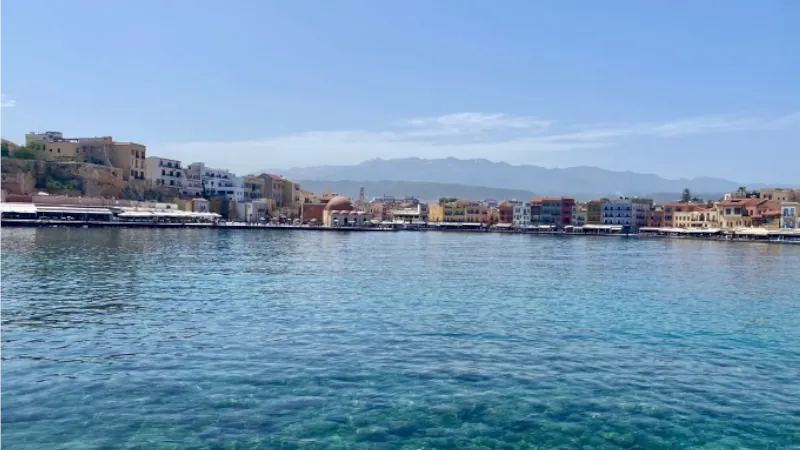
Its capital, Chania city, features an attractive Venetian harbor, cobblestone streets, and a cosmopolitan vibe—yet remains priced well below comparable European destinations.
Highlights From The Chania Region:
- Maleme: Walkable, beachfront, family-friendly... Maleme is booming. I toured a multi-phase development with enduring value thanks to its location, planning, and its long, sandy beach.
- Nopigia: A quiet seaside village with big plans ahead—a luxury development with a marina and golf course in the pipeline.
- Kissamos: As Chania’s second-biggest city, Kissamos is growing fast. With a floatplane airport in development, this second city offers ultra-premium beachfront homes in the €1.2 to €2.2 million range as well as nice homes perched on the hillside with lower entry points.
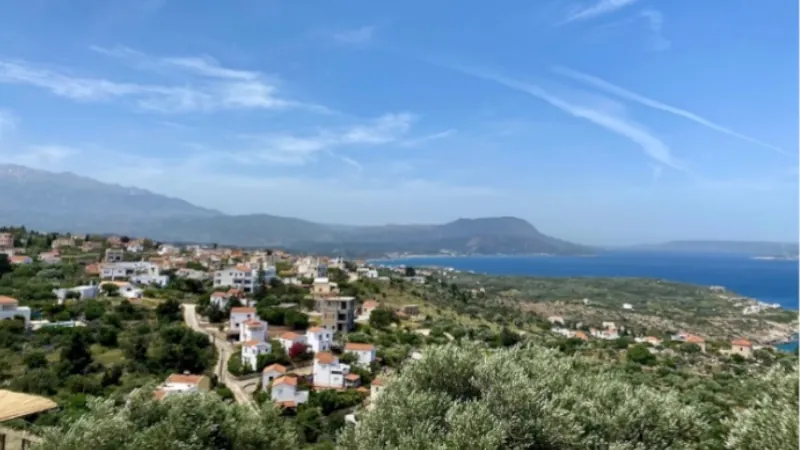
- Apokoronos and Kokkino Chorio: Found to the east of Chania city close to its international airport, these regions are popular with European expats and feature small villas with sweeping ocean views as well as a scattering of villages with amenities.
Strict Development Rules = Long-Term Value
Crete enforces a height cap of 7.5 meters and plot size minimums for raw land builds outside of city and village limits. These regulations protect the island’s character and views, helping preserve long-term capital appreciation potential.
It also has strict codes when it comes to earthquake-proofing buildings.
Strong Rental Potential Backed By Tourism And Infrastructure
Crete’s long tourist season, thanks to mild winters and diverse landscapes, supports decent rental yields—typically in the 3% to 5% range, although self-managed properties may be able to achieve higher than this. The top performers are beachfront units and homes near historic centers.
Crete is also investing in its infrastructure, which has the power to spur its tourism industry on. It has committed €3.5 billion to a new international airport (supposedly with direct flights to the U.S.), upgraded ports and marinas, and better roads.
On top of this, water and electricity supplies are stable thanks to the Lefka Ori mountains and underwater grid connections to the Greek mainland as well as Cyprus and Israel.
The Crete Property Buyer Profile
Buyers include British, German, Scandinavian, and American investors seeking second homes, lifestyle properties, or retirement residences.
Many non-European investors have applied for Greece’s Golden Visa Program, although demand has decreased as the thresholds for investment have increased. Some buyers make their purchases sight unseen, relying on virtual tours.
Mortgages are available through Greek banks, but accessing them can be complicated. Most foreign buyers pay cash.
A Self-Reliant Island With A Global Feel
Crete is more than an investment market—it’s full of character and history. Locals are proud, entrepreneurial, and fiercely independent.
Nearly everything is produced locally, including award-winning olive oil (often rebranded as Italian after export, much to the chagrin of locals). Cretans value self-reliance, community, and quality of life, and this resonates with expats.
Stay Tuned For More Notes From The Field
Crete may not have the glitz of better-known Mediterranean spots, but as I walk its streets, tour its projects, and speak to locals, lawyers, and developers, I believe it’s one of Europe’s most undervalued property markets.
In an era of disappearing Golden Visa programs and rising European property prices, Crete offers a rare mix of lifestyle, upside potential, and security.
Whether you’re looking for a villa with panoramic sea views, a cash flowing rental investment, or a peaceful hillside retreat, Crete deserves your attention.
To smooth travels and successful property buys,

Sophia Titley
Editor, Overseas Property Alert

